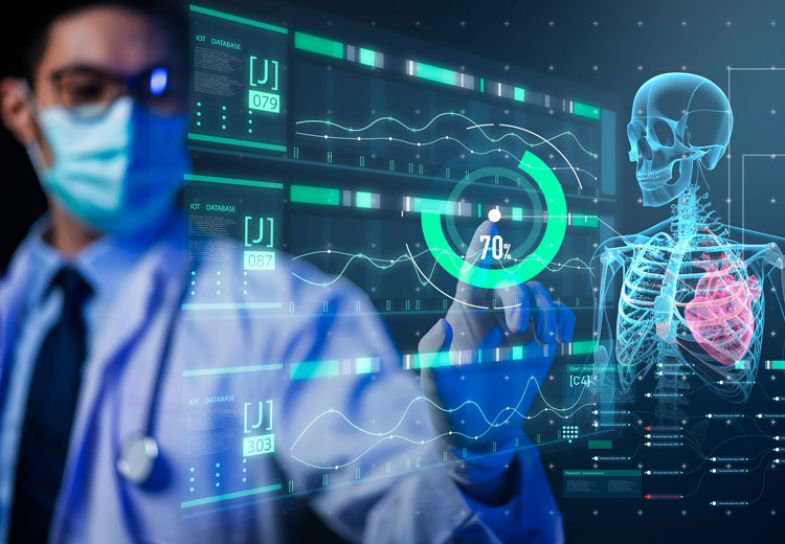
Artificial intelligence (AI) and digital transformation can make good doctors even better, says Ray-Jade Chen, who is a professor in surgery, an established area expert in artificial intelligence in medicine and chair of Taipei Medical University’s (TMU) board of trustees. “AI can help good doctors assist even more people and improve their treatment and possible outcomes.”
Advances in technology have resulted in a deluge of medical data, but healthcare providers need analysis tools and protocols to turn this data into improved outcomes for patients. “We want to create value for patients, healthcare providers and society as a whole,” Chen says. “That is our main job – through education, research and clinical service,”
Established in 1960, TMU has 11 colleges, more than 6,000 students a year, and six affiliated hospitals, namely Taipei Medical University Hospital, Wanfang Hospital, Shuang-Ho Hospital, Hsin Kuo Min Hospital, the Taipei Cancer Center and the Taipei Neuroscience Institute.
In today’s modern era of big data, healthcare providers and researchers can harness the power of analytics and AI to improve patient well-being and reduce costs. With this in mind, the university established its Research Center of Artificial Intelligence in Medicine and Health in 2019. The centre pulls together talent from across its schools and affiliated hospitals, as well as industry, and its members have a wealth of experience in medical teaching, services and technology development.
AI can have life-saving results in diagnostics, particularly radiology, says Chen. “For example, everyone wants to have an early diagnosis of lung cancer” as this improves treatment outcomes. Cancer is one of the leading causes of death in Taiwan, with lung cancer being one of the most lethal. Radiologists have to view many scans a day, but AI could reduce this burden and the precision of the results, says Chen. However, CT chest scans, which are used to detect lung cancer, can also image many other organs, such as the spine, aorta, oesophagus and vascular system, and AI techniques could detect anomalies in these systems too.
But to develop and deploy these techniques, researchers and physicians need data. The university’s Office of Data Science includes a Clinical Data Center, Health Data Analytics and Statistics Center, Institutional Research Center and Bioinformatics Center. “We have data from a variety of sources,” says Chen, from clinical data and government surveillance information through to insurance-company claims data.
The wealth of such a database allows TMU researchers to collaborate with industry and other institutions on projects, such as clinical trials, he says. “We can quickly collate data sets on, for example, pancreatic cancer in our hospitals.” The same is true for collaborations with pharmaceutical companies looking to investigate adverse drug reactions.
AI and large datasets can also play a role in patient care, he says. Studies have found that, for suitable patients, hospital-at-home care – in which patients are closely monitored remotely but able to convalesce at home – has the same or better outcomes than being in hospital. Using AI and the Internet of Things, healthcare workers can monitor patients in real-time. Importantly, says Chen, university researchers and physicians can collect such data to check that hospital-at-home care is appropriate for different treatments.
“AI can help us with staff shortages and we can show whether patients receive the same, or even better, care,” he says.
source: Times Higher Education